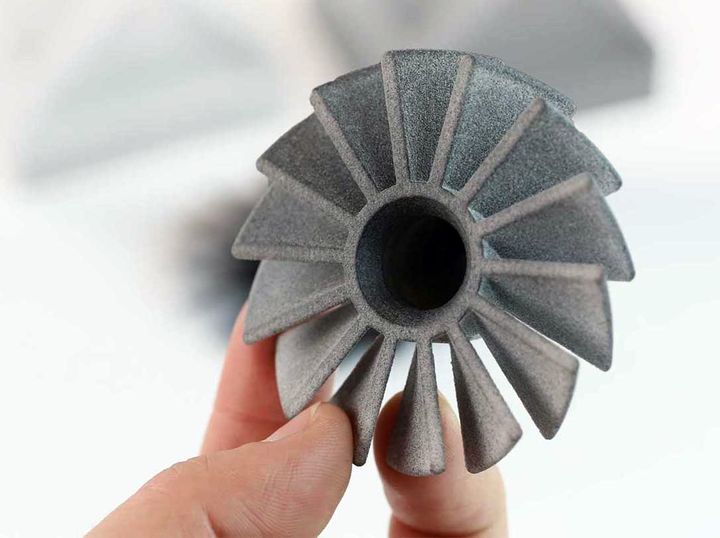
Fictiv and Jabil announced an unusual collaboration that should allow for far faster 3D printed production.
Manufacturing Networks
Fictiv is one of several growing “manufacturing networks” around the world. In this configuration a number of independent 3D printer operators become members of the network, which provides them with work requested by clients. The central operator of the network typically doesn’t have their own 3D printing gear, but instead acts as a kind of router of requests to participating companies. We published an interview with Dave Evans, their CEO, where you can learn more about them. Recently they received an investment of US$33M.
The typical participant in a manufacturing network is a small to medium-sized operation that happens to have some free time on their equipment. That free time can potentially be filled by requests coming from the manufacturing network. It’s an easy way to maximize the investment in equipment without having to spend a great deal on sales, as would be the case without a network.
The manufacturing network becomes a powerful entity when it attracts a large number of these smaller operators, as together they operate as a single, giant “factory” in the view of the network clients. In reality, the work is actually done by individual participants, but there’s essentially no difference as the same equipment and materials are used regardless of the participant.
Fictiv adds value by focusing on a specific segment of manufacturing users: startup companies. They provide a number of aids to guide startups toward successful prototypes. By providing more than just 3D printing (they also offer CNC machining, injection molding, and urethane casting), they can ensure their clients use the right tools for the job.
Fictiv clients are shown instant quotes when CAD designs are submitted to the service. Their online tools can analyze a design and make suggestion before proceeding with the actual manufacturing.
This is an essential service for startups, many of whom may find themselves in their very first manufacturing experience, and there’s plenty to learn. A very common problem is designs that work for their intended purpose, but are challenging to manufacture. A good manufacturing service will work with the client to optimize the design for manufacturing while still retaining optimal function.
Fictiv and Jabil
We’ve written about Jabil many times; they are a large and very experienced manufacturing solutions provider that happens to make extensive use of 3D printing, but also many other technologies and processes. Many companies seek them to provide mass manufacturing services for their products.
The news here is that Jabil has joined Fictiv’s manufacturing network. This is quite important as they are not just another manufacturer; they are one of the biggest and most capable.
There’s a really interesting evolution happening here. If you think about this from a startup’s point of view they would first engage a service to help them develop a manufacturable prototype. Then once that’s settled they’d move on to a full-on mass manufacturing service.
It’s likely that Fictiv observed many of their clients moving from them to Jabil once they completed their prototypes, and they saw an opportunity: link the two together.
This allows a client to get both types of services through Fictiv in a more seamless experience.
The result is that that startups have less looking around to identify their partners, while both Jabil and Fictiv get more clients and business with less effort.
This is a very good business idea, as it benefits everyone. That’s with the exception of Fictiv’s competitors.
